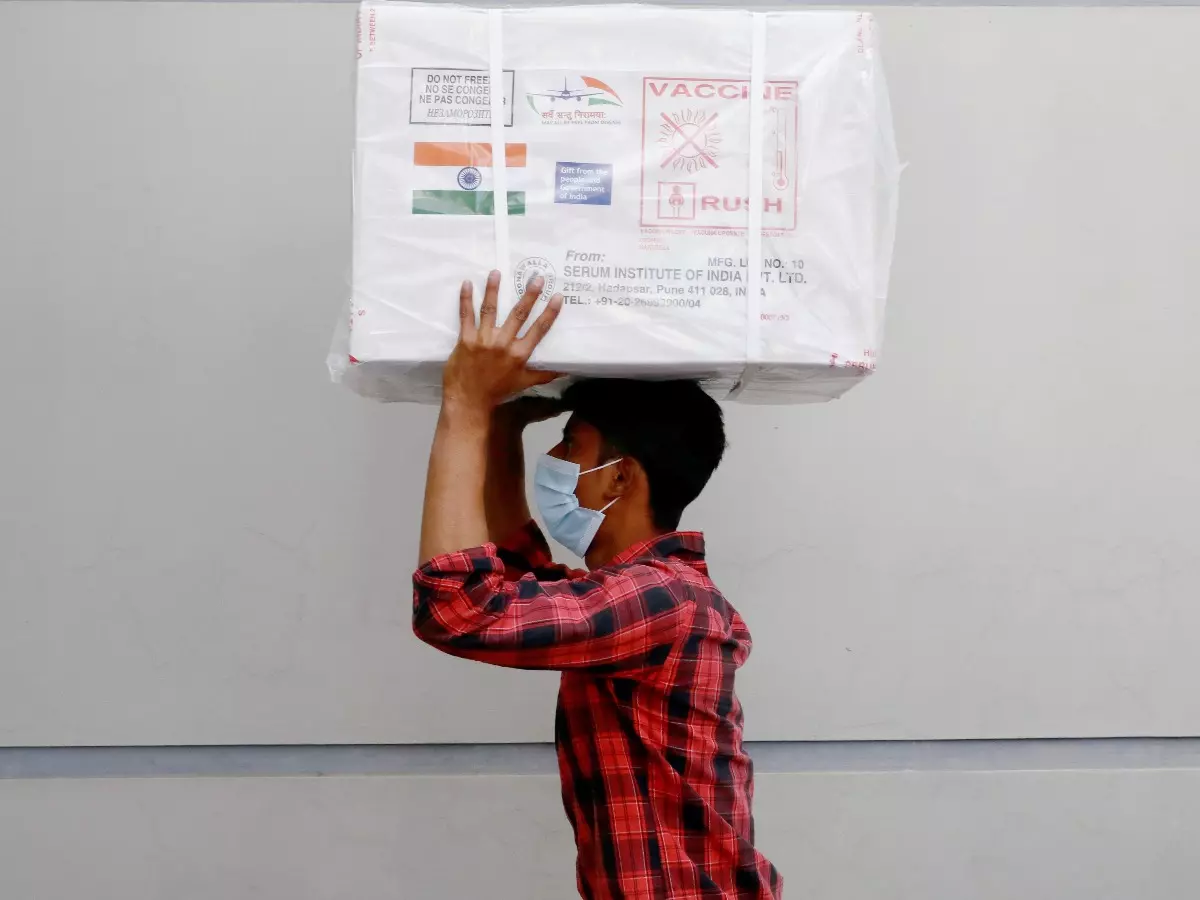The Math Of Vaccinating Everyone In India Against COVID-19: Here Is What It Will Take To Do
India is in the grip of a deadly second wave of COIVD-19 and every passing day new records are being set for the highest single-day rise in the number of new infections. This is resulting in a growing call from across the spectrum to make COVID-19 vaccines available for all unlike the current cap of healthcare workers frontline workers and those above the age of 45.

India is in the grip of a deadly second wave of COIVD-19 and every passing day new 'records are being set for the highest single-day rise in the number of new infections.
This is resulting in a growing call from across the spectrum to make COVID-19 vaccines available for all, unlike the current cap of healthcare workers, frontline workers, and those above the age of 45.
Like all the countries around the world India, which began its COVD-19 vaccine rollout in late January did it in a phased manner.
 AFP
AFP
The primary reason behind this was the gap in demand and supply.
India which gave emergency use authorization for Covishield also cleared homegrown Bharat Biotech's Covaxin despite it not completing clinical trials at that time.
Even now, those are the only two vaccines that have been approved and as the country is expanding its vaccination programme there is a shortage of the doses in many states.
 BCCL
BCCL
The two manufacturers, Serum Institute of India and Bharat Biotech have been ramping up their production capacities to meet the rising demand, both domestic and international.
SII, which is the world's largest vaccine maker has been producing around 60-65 million doses per month currently and has delivered more than 100 million to the government so far.
In the coming months, the company aims to scale up the production capacity and by June the target is 110 million doses a month.
 AFP
AFP
But it comes at a price - the company requires around Rs 3,000 crore to ramp up production capacity.
SII CEO Adar Poonawalla told CNBC-TV18 that he would have to look at other sources of funds 每 bank loans and advances against supplies 每 if the government wasn*t able to give a grant.
It is not just SII that is looking to the government for help. Even Bharat Biotech which is preparing to increase production of its Covid-19 vaccine by using its Bengaluru plant has sought funds from the government.
Bharat Biotech, in an effort to scale up its production, is planning to convert its plant in Bengaluru which was set up to produce vaccines for animals as Covaxin facility.
 BCCL
BCCL
Bharat Biotech currently produces 5 million doses of Covaxin a month says it can scale up the production by 5-7 times with the new production line.
But it has asked for Rs 150 crore and Rs 75 crore each for both facilities Hyderabad and Bengaluru to achieve this.
"There has to be a systematic increase in vaccinations and Bharat Biotech should also be able to supply 120-130 million doses of Covaxin by August,§ Professor V K Paul, member of NITI Aayog had said.
The other hopes India has for more vaccines are Novavax, which once again will be manufactured by SII and will be called Corovax in India. The launch which was initially set for June has now been delayed until September.
 Reuters
Reuters
Another possible candidate is the Russian-made Sputnik V vaccine.
Russian Direct Investment Fund (RDIF) signed contracts with several Indian contractors to manufacture the Sputnik V vaccine to the tune of 700-750 million doses.
One of them, Delhi-based Panacea Biotec on Tuesday said it has signed a deal to produce 100 million doses per year of Sputnik V vaccines in India.
Dr. Reddy's Laboratories already has a tie-up for the distribution of Sputnik V and Phase III trials for the coronavirus vaccine is currently being carried out by the Indian drugmaker.
Recently it was reported that India will manufacture Johnson & Johnson*s single-dose coronavirus vaccine as part of the initiative of the Quad group of countries. However, the details, including the scale and how much of it will be available domestically are still unclear.
 BCCL
BCCL
India has administered over 84 million Covid-19 vaccine doses across the country by Tuesday.
In October 2020 Union Health Minister Harsh Vardhan had said that India is expected to receive and utilise 400-500 million doses and cover approximately 200-250 million people by July 2021.
